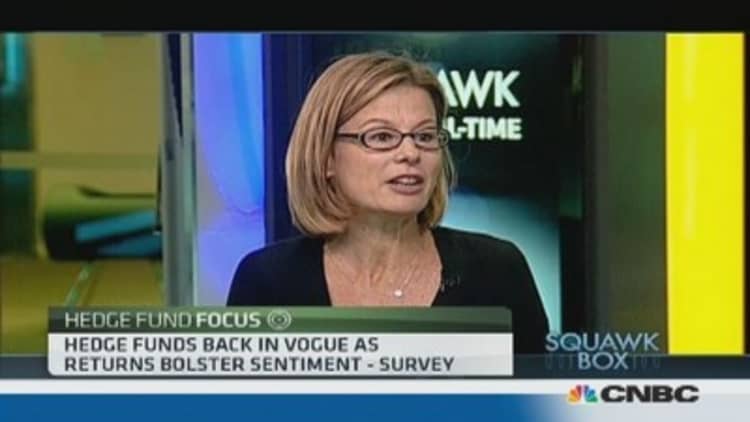Hedge funds usually thrive on volatility, but many of them are sitting out the emerging market turmoil even as they become more positive on the segment.
Greater differentiation among global emerging markets, leading to less correlation within the asset class, should offer hedge funds more scope for returns as they typically make both long and short bets.
(Read more: 2014: The year hedge funds fight back)
"Hedge funds are still viewing emerging markets as a great opportunity now that it's no longer moving in synch with other markets," said Nicolas Campiche, chief executive officer for alternative investments at Swiss private bank Pictet.
But he added, "We're very picky," with most of the exposure through macro managers.
(Read more: These big hedge funds got crushed in January)
Many hedge fund managers are keeping their exposure to the segment relatively low. Indeed, they increasingly say they are "under-invested" in emerging markets – or that they believe their risk position should be increased if they were aligned with their sentiment, according to a survey by Societe Generale, which found this described about 42 percent of the hedge-fund clients surveyed.
The problem may be that emerging markets simply aren't developed enough for hedge funds' strategies.
(Read more: Coming soon to a theater near you: Hedge funds—the movie)
"Most hedge funds in emerging markets tend to be long only. I don't want to pay 2/20 for that," Campiche told CNBC, referring to the typical hedge fund fee structure of 2 percent of assets invested and 20 percent of returns. Getting emerging market exposure via equity funds would be cheaper, he said.
Others also cited the limitations affecting hedge funds' investments in emerging markets.

"Running a true long-short in many emerging markets is difficult," said Misha Graboi, a portfolio manager for Pacific Alternative Asset Management Co., or Paamco, a fund of hedge fund firm.
"In many emerging markets, either there are outright prohibitions on shorting or getting the liquidity or the shorting costs are prohibitively high," Graboi said.
(Read more: And the world's most successful hedge fund manager is...)
"Sometimes they end up just shorting an index and the problem of shorting the index in emerging markets is that they tend to be dominated by one industry or even one company," he added. "Long some stocks and short the index would be an explicit sector bet in some emerging markets."
As an example, he cited Samsung Electronics' dominance of South Korea's stock market. Samsung Electronics is the Korean stock market's biggest capitalization stock and it has an around 25 percent weight in the benchmark Kospi index. Samsung and Hyundai Motor together account for about 21 percent of the benchmark Kospi index's total market capitalization.
He noted Paamco has limited exposure to emerging markets, mostly through pan-Asia managers, and it prefers investing in developed markets.
—By CNBC.Com's Leslie Shaffer; Follow her on Twitter @LeslieShaffer1

